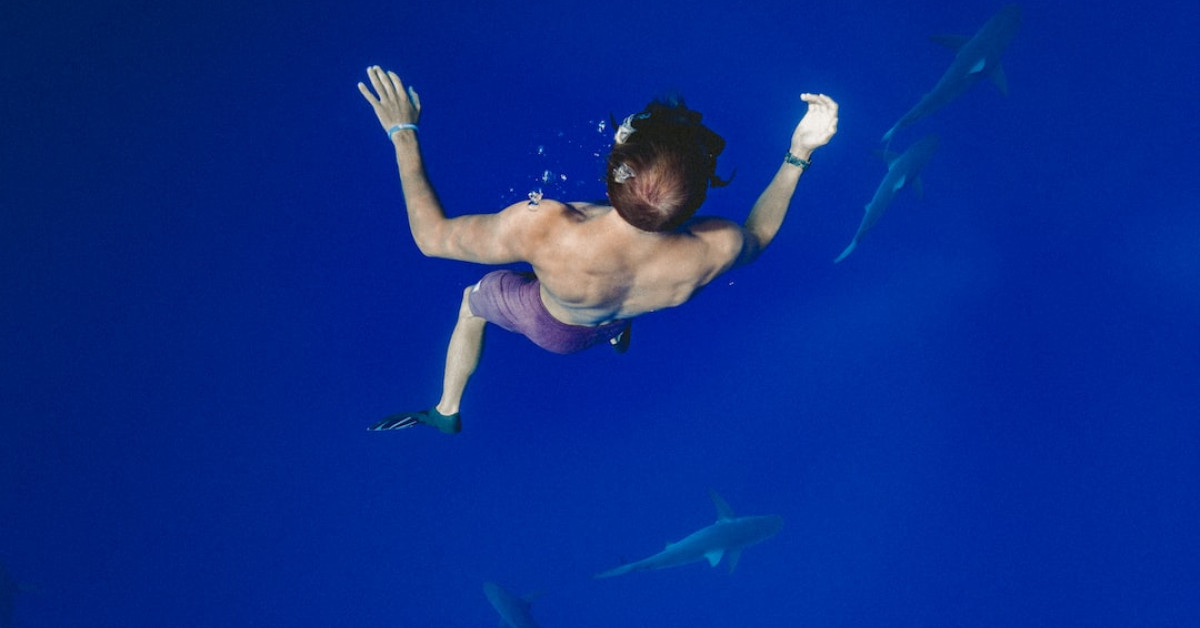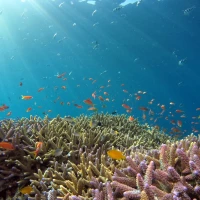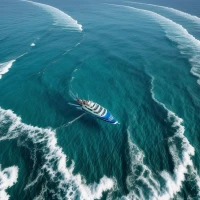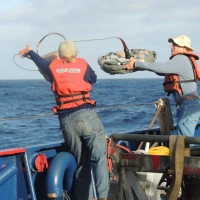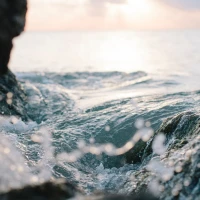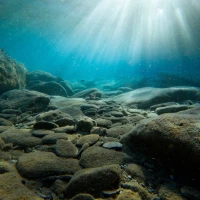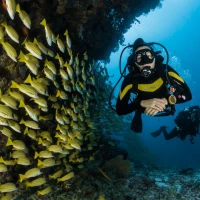Scuba diving is an exhilarating and awe-inspiring activity that allows individuals to explore the depths of the ocean and witness the breathtaking beauty that lies beneath the surface. Whether you are an adventurous thrill-seeker or a nature enthusiast, scuba diving offers an unparalleled experience that can be enjoyed by people of all ages and skill levels. In this article, we will delve into the world of diving, discussing its history, equipment, benefits, and destinations, as well as provide valuable tips for beginners and seasoned divers alike. So grab your wetsuit and dive into the wonders that scuba diving has to offer!
The History of Scuba Diving
Scuba diving, an acronym for Self-Contained Underwater Breathing Apparatus, has a fascinating history that dates back several centuries. While early attempts to explore the underwater world were made by ancient civilizations such as the Greeks and Romans, it wasn’t until the 20th century that scuba diving as we know it today began to take shape.
Early Innovations
In 1943, French naval officer Jacques-Yves Cousteau and engineer Émile Gagnan co-invented the Aqua-Lung, a device that revolutionized underwater exploration. This invention allowed divers to carry their own air supply and explore the ocean depths with unprecedented freedom and ease. The Aqua-Lung laid the foundation for modern scuba diving and sparked a worldwide interest in underwater exploration.
Evolution of Equipment
Over the years, scuba diving equipment has undergone significant advancements to enhance safety and comfort for divers. Today, divers rely on a range of essential gear to ensure a smooth and enjoyable diving experience. Some of the key equipment includes:
- Diving mask: Provides a clear view underwater and protects the eyes.
- Snorkel: Allows divers to breathe at the surface without needing to remove their mask.
- Wetsuit: Provides insulation and protection against cold water temperatures.
- BCD (Buoyancy Control Device): Enables divers to control their buoyancy and maintain a comfortable position underwater.
- Regulator: Delivers air from the scuba tank to the diver’s mouthpiece, allowing them to breathe underwater.
- Dive computer: Monitors depth, time, and other vital information to ensure safe diving practices.
Benefits of Scuba Diving
Aside from the sheer thrill and adventure, scuba diving offers a multitude of benefits for both physical and mental well-being. Let’s explore some of the advantages that this exhilarating activity provides.
Physical Fitness
Scuba diving is a full-body workout that engages multiple muscle groups. The resistance provided by the water requires divers to use their arms, legs, and core muscles to navigate and maintain buoyancy. Regular diving can improve cardiovascular endurance, strength, and flexibility.
Stress Relief and Mental Health
Exploring the underwater world has a calming and meditative effect on the mind. The rhythmic sound of underwater bubbles and the serene surroundings help reduce stress and anxiety. Additionally, scuba diving promotes mindfulness as divers focus on their breathing and the present moment, leaving behind the worries of everyday life.
Connection with Nature
The ocean is home to a vast ecosystem filled with vibrant marine life and stunning coral reefs. Scuba diving allows divers to witness the wonders of this underwater world up close, fostering a deep connection and appreciation for nature. The sights and sounds encountered while diving provide a sense of tranquility and remind us of the importance of marine conservation.
Adventure and Exploration
With scuba diving, every dive is an adventure waiting to unfold. Whether exploring shipwrecks, diving with sharks, or encountering elusive marine species, the underwater world offers endless opportunities for exploration and discovery. Divers can immerse themselves in new and exciting environments, making each dive a unique and unforgettable experience.
Scuba Diving Destinations
From the crystal-clear waters of the Caribbean to the incredible biodiversity of the Great Barrier Reef, scuba diving destinations around the world offer diverse marine ecosystems and awe-inspiring underwater landscapes. Here are some of the top diving destinations that should be on every diver’s bucket list.
The Great Barrier Reef, Australia
Stretching over 2,300 kilometers along the coast of Australia, the Great Barrier Reef is the world’s largest coral reef system. With its mesmerizing corals, abundant marine life, and breathtaking visibility, this UNESCO World Heritage site offers unparalleled diving opportunities. From vibrant coral gardens to encounters with sea turtles, reef sharks, and manta rays, the Great Barrier Reef promises a truly unforgettable diving experience.
Maldives
The Maldives is a tropical paradise renowned for its pristine white-sand beaches and crystal-clear waters. Below the surface, divers are treated to a vibrant underwater world teeming with colorful coral reefs, manta rays, whale sharks, and an array of tropical fish. The Maldives is also an excellent destination for night diving, where divers can witness the enchanting bioluminescence of the ocean.
Palau
Located in the western Pacific Ocean, Palau is a hidden gem for divers seeking untouched beauty and incredible biodiversity. The archipelago boasts over 500 species of coral and more than 1,300 species of fish, making it a haven for underwater photographers and marine enthusiasts. From exploring World War II shipwrecks to swimming with jellyfish in Jellyfish Lake, Palau offers a unique and unforgettable diving experience.
Red Sea, Egypt
The Red Sea is renowned for its warm waters and exceptional visibility, making it a top choice for divers around the world. With its diverse marine life and breathtaking coral reefs, this destination offers an abundance of underwater wonders. From the famous dive sites of Ras Mohammed National Park to the iconic SS Thistlegorm wreck, the Red Sea promises thrilling adventures for divers of all levels.
Tips for Beginner Divers
If you’re new to scuba diving, it’s important to approach this activity with the right knowledge and preparation. Here are some valuable tips to ensure a safe and enjoyable diving experience.
Get Certified
Before embarking on your diving adventures, it’s essential to obtain proper certification from a reputable dive training agency such as PADI (Professional Association of Diving Instructors) or SSI (Scuba Schools International). These certification courses provide theoretical knowledge and practical skills necessary to dive safely and confidently.
Start in Calm, Clear Waters
As a beginner, it’s advisable to begin your diving journey in calm and clear waters with good visibility. These conditions allow for easier navigation and a more relaxed diving experience. Destinations such as the Caribbean or popular dive sites like the Gili Islands in Indonesia are ideal for novice divers.
Dive with a Buddy
Diving is a social activity best enjoyed with a buddy. Having a dive buddy ensures mutual support, increased safety, and the opportunity to share memorable experiences underwater. Always maintain visual contact with your buddy and establish clear communication signals before each dive.
Practice Buoyancy Control
One of the most crucial skills in scuba diving is mastering buoyancy control. Proper buoyancy allows divers to maintain a comfortable position in the water, conserve energy, and minimize damage to the fragile marine ecosystem. Practice controlling your buoyancy in a controlled environment, and remember to adjust your weights and BCD as needed.
Follow Safe Diving Practices
Safety should always be a top priority when scuba diving. This includes planning your dives, conducting pre-dive safety checks, monitoring air consumption, and adhering to depth and time limits. By following safe diving practices, you can enjoy your underwater adventures while minimizing risks.
Conclusion
Scuba diving is a captivating activity that opens up a world of wonder and adventure beneath the surface of the ocean. From the historical advancements in diving equipment to the stunning destinations and the myriad of benefits, scuba diving offers a unique and rewarding experience. Whether you’re a beginner venturing into your first dive or an experienced diver exploring the depths, the wonders of scuba diving are boundless. So dive in, explore the depths, and discover the breathtaking beauty that awaits in the underwater world!
